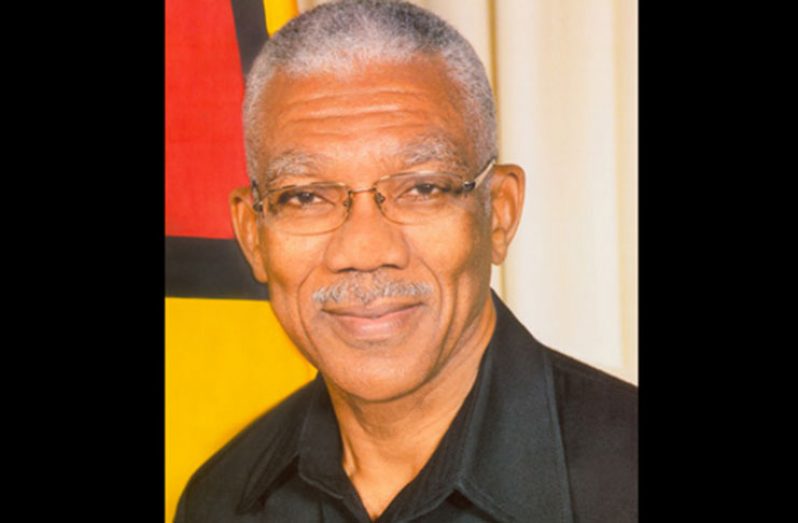— President Granger
THE 14 per cent Value Added Tax (VAT) on private school tuition fees will remain for now until reviewed by the next budget in 2018.
Speaking on his weekly televised programme ‘The Public Interest’, President Granger said school operators have been given the assurance that VAT on private institutions will be reviewed in the next budget.
He said the Government needs the revenue and the tax-based needs to widen but it must not appear to be a punitive measure.
The President explained that Government has to find $30B for education and these funds are sourced from taxation.
“We are asking people to be more patient, more tolerant, we have committed to reviewing it and I would like to see it lowered,” the head of state said.
He explained: “We have explained that we had to widen the tax base, there was widespread tax evasion, we need to collect taxation and that is how Governments work, once you see there is massive evasion and non-compliance, it then means that the Government work will be hampered.”
Prime Minister Moses Nagamootoo and other Government officials, including Education Minister, Dr Rupert Roopnaraine and Public Telecommunications Minister,Cathy Hughes ,recently met with private schools officials at the National Culture Centre.
The prime minister made it clear in a recent column that VAT was introduced in 2007 by the Bharrat Jagdeo Government, with wide application at the rate of 16 per cent.
He said while the minimum wage was frozen and increases were contained to an average five per cent annually, there was justifiable agitation for reduction of VAT to bring down the cost of goods and services.
But the Government held on to the 16 per cent, and refused to compromise. It had argued that for every one percentage point that VAT was reduced the Government would lose $2.5B in revenues.
The prime minister said that as part of the sweeping tax changes advised by a Tax Reform Committee, the income tax threshold was raised to $60,000, which removed several thousands of wage-earners from the tax net and the rate of income-tax deduction was reduced to 28 per cent for persons earning up to $100,000 and one-third for persons earning more than that.
Besides, the minimum wage and old age pensions were increased and public servants wages went up by 38 per cent.
Finance Minister Winston Jordan had said there are some 86 private schools in Guyana, many of them making huge revenues.
Fees range from between $144,000 and $300,000 annually, which do not include extra lessons, uniforms, books, coaching fees, etc.
The top eight among these private schools rake in fees estimated at over $2B annually.
In spite of the spirited agitation for withdrawal of the 14 per cent tax, only about one-quarter of the private schools are registered for and are VAT-compliant, and prior to 2017, some of these entities were refunded some $150 million in VAT.
It was expected that the refunds would have been ploughed back into the school system, and resulted in reduced tuition fees, the Prime Minister reasoned.
Several private schools and some students have been clamouring for Government to reverse the 14 per cent Value Added Tax (VAT) on private tuition fees.
Dr Brian O’Toole, head of Nations University had told a consultation last Friday that the solution to the issue is “not to punish who pay tax” but to go after those who are not compliant.
He said 12 per cent of students pursuing the American Business Executive (ABE) programme at Nations have already dropped out of the programme in light of the increased fees following implementation of the VAT measure.





.jpg)








